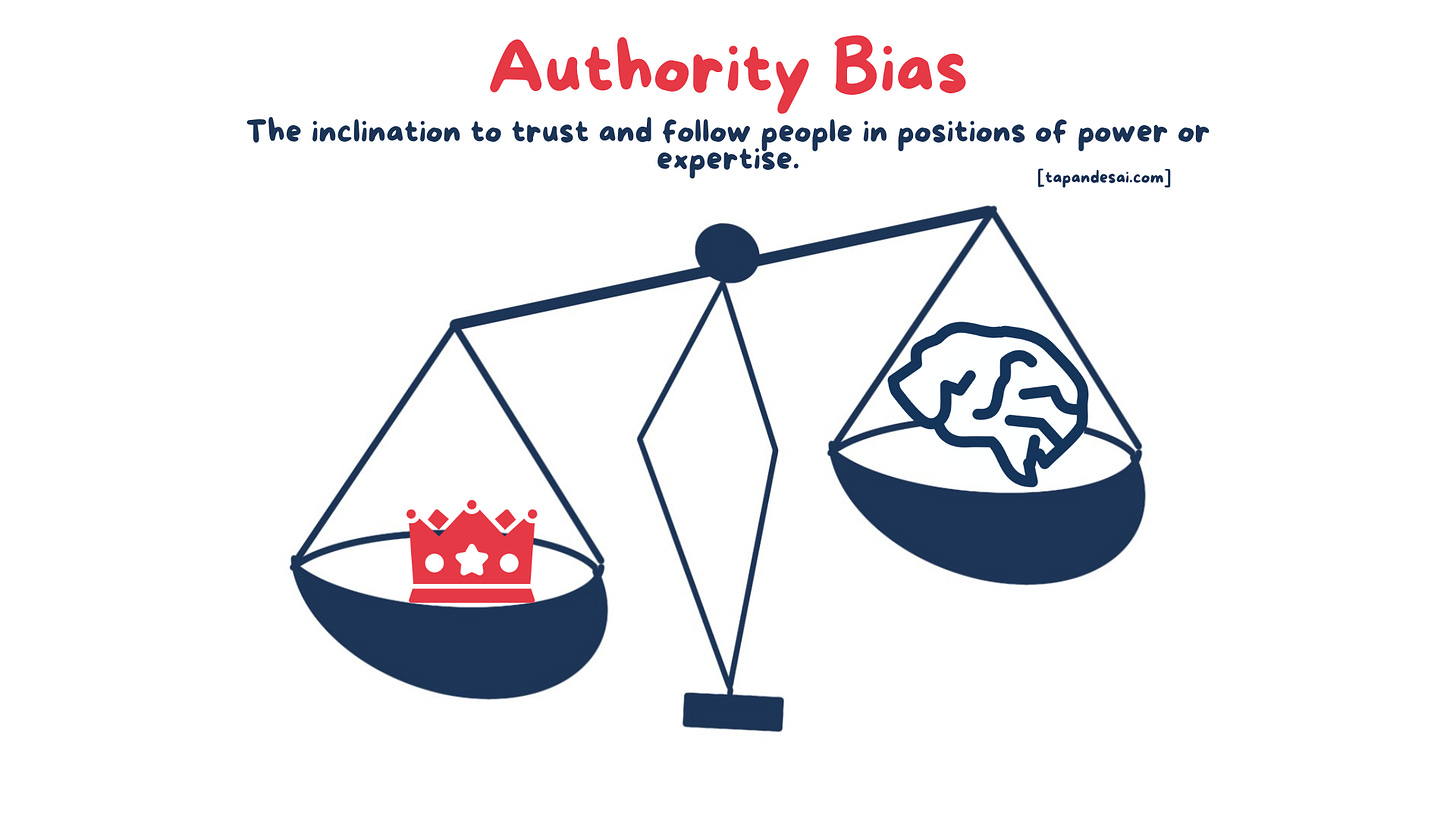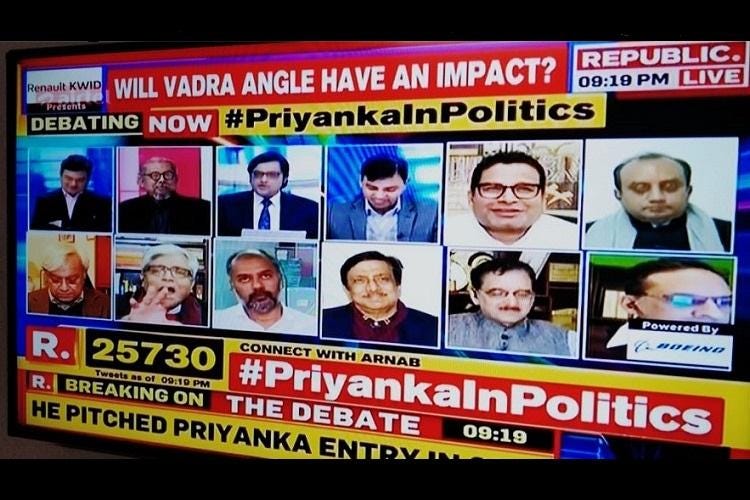Monthly Mulling 💡
Challenge Conventional Wisdom: Survivorship Bias, Warren Buffett's Noah Principle, and Unlikely Champions Razor
Hi👋 Tapan here.
Monthly Mulling is a 2x monthly newsletter with 3 timeless ideas to help you make better decisions in your life and career. Join now👇🏽
Note: If my emails end up in the ‘promotions’ tab, please move them to the inbox so you don’t miss out.
Happy Sunday y’all! Before we start, as always, here are the updates:
✍🏼 New articles on the blog:
🏹 Overcoming Authority Bias: Lesson from Mahabharata’s Eklavya
🧐 Unearthing Wisdom from Feynman’s Cargo Cult Science Speech: Lessons for Better Decision-Making
📖 Currently, I am reading: Makers of Modern India by Ramachandra Guha
This book is a compilation of essays written by 19 prominent Indian political thinkers, spanning from Ram Mohan Roy to B. R. Ambedkar. The author, Ramachandra Guha, is well-known for his book "India After Gandhi", which is one of my personal favourites on the subject. But, I must admit that I have been a bit disappointed with "Makers of Modern India" so far.
🛩️ Dodging Bullets and Biases
👀 Take a look at the image of the WWII bomber plane below that returned to the base, with red dots marking bullet holes from enemy aircraft.
The Allied Forces wanted to add armour to the aircraft to better protect them, but faced a dilemma:
🛡️ Too much armour makes the plane heavier, reducing its flying range
💥 Too little armour leaves the plane vulnerable to destruction
Before you continue reading, answer this👇🏽
⛔️ Last chance to answer the poll before you continue. You have been warned!
Most researchers from the Center for Naval Analyses wanted to add armour where the plane showed the most damage (where the red dots are).
But Abraham Wald, a Hungarian mathematician, had a different opinion. He noted, “The study was only conducted on the aircraft that had survived and returned from their missions. It didn’t paint a complete picture. It didn’t show the bomber planes that had been shot down and did not return.”
Makes sense? Bullet holes on returning planes show which areas can handle damage; areas without holes are (maybe) more critical and need protection to avoid crashes!
🧠 Survivorship bias happens when you only look at the people or things that have "survived" a specific experience or situation, without considering the ones that didn't make it.
Where else have you seen survivorship bias?
💰 Bill Gates, a college dropout, turned billionaire; so dropping out of college must be a golden ticket, right? Not quite.
💪🏼 Mr. X shed 15 kg by walking every evening; evening strolls must be the ultimate weight loss hack, right? But what else was Mr. X doing?
🍔 Google Maps is flooded with negative restaurant reviews. But remember, only the extremely delightful or dreadful experiences usually make the cut!
🛩️ Airplanes seem like a perilous mode of transportation with all the crashes on the news. But do they ever feature all the successful landings?
We often cast the winners (or losers) as the norm instead of considering them outliers.
A stupid decision that works out well becomes a brilliant decision in hindsight.
- Daniel Kahneman (Tweet this)
💡 So, what can you do about survivorship bias?
Survivorship bias happens when we only consider successful outcomes without accounting for failures.
Recognize the potential for “hidden” or “silent” evidence: Don’t look just at what you can see. Consider all the things that started on the same path but didn’t make it.
Consider the counterfactuals: Ask, "What if this person or thing hadn't survived?". This can help to provide a more nuanced and complete understanding of the situation. Here’s my article on inversion which can help.
🏆 Defying Authority Bias with the Unlikely Champion Razor
🧠 Authority bias is the tendency to overvalue the opinions or decisions of those in positions of power, often leading to unquestioning obedience.
We are most easily influenced by credible authorities, those we see as both knowledgeable and trustworthy.
We see authority bias a lot in our daily lives:
🌟 Marketing & Endorsements: We often trust and buy products endorsed by our favourite celebrities or someone with authority.

🏢 The Hierarchy at Work: In the workplace, employees tend to follow their manager’s decisions, even if they disagree or have better ideas.
📰 News Sources: People tend to trust information coming from reputed news sources, even if the information may be biased or incomplete.
You can read my full article on authority bias here👇🏽
💡 So, how can you use authority bias to your advantage? Introducing the “Unlikely Champions” Razor.
Here’s a thought experiment from the famous Nassim Taleb:
Say you had the choice between two surgeons of similar rank in the same department in some hospital. The first is highly refined in appearance…The second one looks like a butcher…
🤔 Who will you choose?
The majority of people will choose a surgeon with a refined appearance. Why? Because authority bias has a strong effect. We are most easily influenced by those we see as both knowledgeable and trustworthy.
🧠 The “Unlikely Champion” Razor: If forced to choose between two options of seemingly equal merit, choose the one that doesn’t conform to expectations.
Why? The less conventional option has likely had to surmount greater obstacles to achieve its current status compared to the one that blends in seamlessly.
Now, there is no scientific research that this will always hold true. However, this framework will help you think through the various available options and cut through your “authority bias”.
The “Unlikely Champion” Razor encourages you to embrace the unconventional.
By doing so, you can make more informed decisions and potentially uncover hidden gems that would otherwise go unnoticed.
🚢 Warren Buffett's Noah Principle: Embrace Action, Not Procrastination
Waiting for the right time is seductive. Our mind tricks us into thinking that waiting is actually doing something.
- Shane Parrish
It's easy to find yourself always waiting for the right moment, the perfect circumstances, or for everything to feel just right. However, doing nothing is a decision, and the cost of inaction could be greater than the cost of taking action.
🧠 Remember Warren Buffett's Noah Principle: "Predicting rain doesn’t count, building arks does." (Tweet this)
Taking action helps you survive the storm while talking without taking action leaves you vulnerable to the consequences.
Thanks for reading 🙏🏽 Do you think any of your friends or family will like Monthly Mulling like you? Please share!😇
If you have any comments, you can connect with me on Twitter or reply to this email!












Cool article Tapan. The airplane story really makes the point quite effectively.